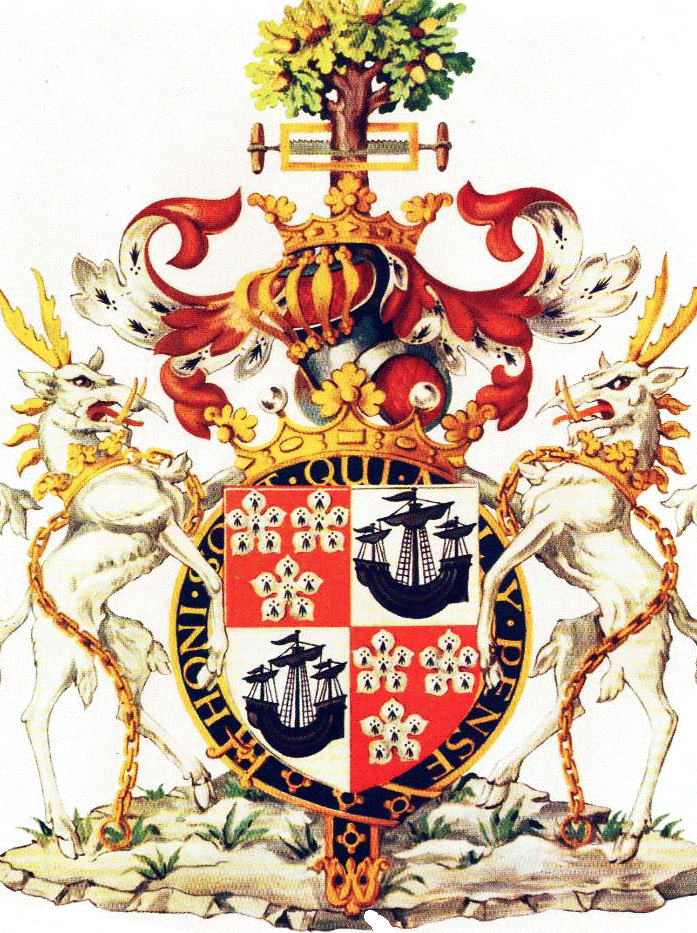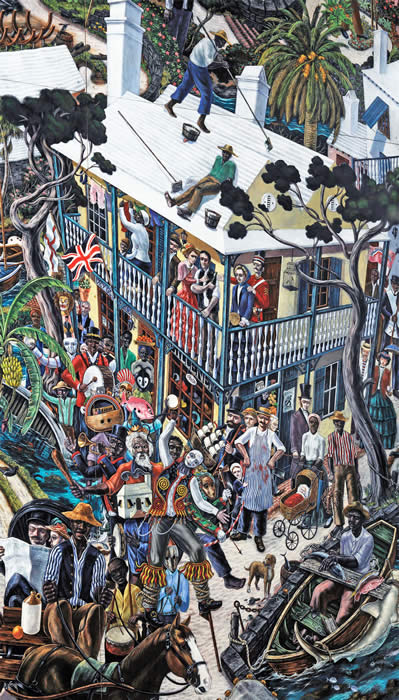
The history of Bermuda is an interesting one, and we'll start our summary of it with its European discovery. Bermuda is a chain of islands, though it's commonly referred to as a single island, and the first sighting of these islands occurred in and around the year 1503. A Spanish explorer by the name of Juan de Bermudez is the one who is credited with first laying eyes on Bermuda's then uninhabited islands. As such, the territory takes its name from Bermudez, which is one of the more interesting Bermuda facts. Some historians debate whether 1503 is an accurate date in terms of Bermuda's discovery, while all agree that knowledge of the islands was attained by 1511. It was in that year that Bermuda appeared on a map known as the Legatio Babylonica. During the 1500s, several Spanish ships landed on the islands, as did Portuguese ships, though they only used the islands to replenish food and water supplies.
Certain dark legends surrounding Bermuda kept any Spanish or Portuguese settlers at bay during the 1500s, which is why the territory was also referred to as the Isle of Devils. In 1609, however, British settlers headed to Jamestown, Virginia would forever change the history of Bermuda. When two previous British settlements at Jamestown had failed, King James I of England initiated a new push to succeed at colonization in the America. A Royal Charter was granted by the king to the Virginia Company, whose responsibility it was to establish settlements in the New World. A small fleet of ships was then sent out in 1609, led by the flagship Sea Venture on which Admiral Sir George Somers was at the helm. Somerset Island in Sandys Parish is named for Admiral Somers.
When the fleet of British ships was broken up by a strong storm while en route to the New World, the Sea Venture purposely wrecked itself on a Bermuda reef. It was a most monumental moment in Bermuda history. The crew survived, and they first set foot in Bermuda in what is now St Georges Parish. Though new ships were built and most of the first settlers carried on to Virginia, the British Crown had laid claim to the Bermuda islands, thus setting the stage for modern-day Bermuda culture. Interestingly enough, the storm that ravaged the Sea Venture is believed by some to have inspired Shakespeare to pen The Tempest. To really get in touch with Bermuda history during your Bermuda vacation, all attempts should be made to visit St Georges Parish, and namely St George's Town, which is a UNESCO World Heritage Site.Walking tours here reveal a number of historical attractions, including Fort St Catherine, which was originally completed way back in 1614. Major reconstructions in the 1800s have altered it a bit, but it's still a top Bermuda historical attraction. You can learn all about the early history of Bermuda at the Fort St Catherine Museum.
One of the more interesting Bermuda facts pertains to the intentional settlement of Bermuda, which didn't begin until the year 1612 when the Plough first arrived. As far as becoming an official British crown colony, the history of Bermuda sees that occurring in 1684. Long prior to 1684, however, the British settlers had already begun to import slaves from Africa and America. Due to the fact that most agricultural efforts were proving fruitless at the time, many slaves worked as traders or domestic servants instead of field workers. When slavery in the region was abolished in 1834, some 5,000 Bermuda residents were categorized as "coloured" or "black." This was out of a total 9,000 residents, and Bermuda culture today continues to reflect this strong African influence, predominantly in the physical appearance of many modern-day Bermudians.
During the 1800s, Bermuda's trade ties with the American colonies became increasingly stressed, due to conflicts like the War of 1812 and the US Civil War. Most Bermudians sided with the crown during these wars, while a small group in Sandys Parish sided with the revolutionists. After the British lost the American War of Independence, they also lost their ports on America's Atlantic Coast. As a result, construction began on Bermuda's Royal Naval Dockyard in 1809. It was to be dubbed, the "Gibralter of the West," signifying the same kind of strategic outpost as the one found just off the coast of southern Spain. The Royal Naval Dockyard remained in use through WWII, and now it is a main Bermuda tourist attraction, offering a museum among its many other attractions. It's a good place to learn a little bit about the history of Bermuda, not to mention enjoy a little snorkeling.
Bermuda remains a British territory to this day, though it makes its own laws and has a Constitution of its own, which was realized on June 1, 1967. It is a very affluent territory, due largely in part to its status as an offshore banking center. A verifiable tax haven in the twentieth century, Bermuda is working to shift their image a bit in that department. Tourism is a strong industry for Bermuda, and though it is relatively expensive to travel here, it is very rewarding. Bermuda history and Bermuda culture are just two of the reasons to plan a Bermuda vacation, so pack your bags, hop on a plane or cruise ship, and come


















No comments:
Post a Comment